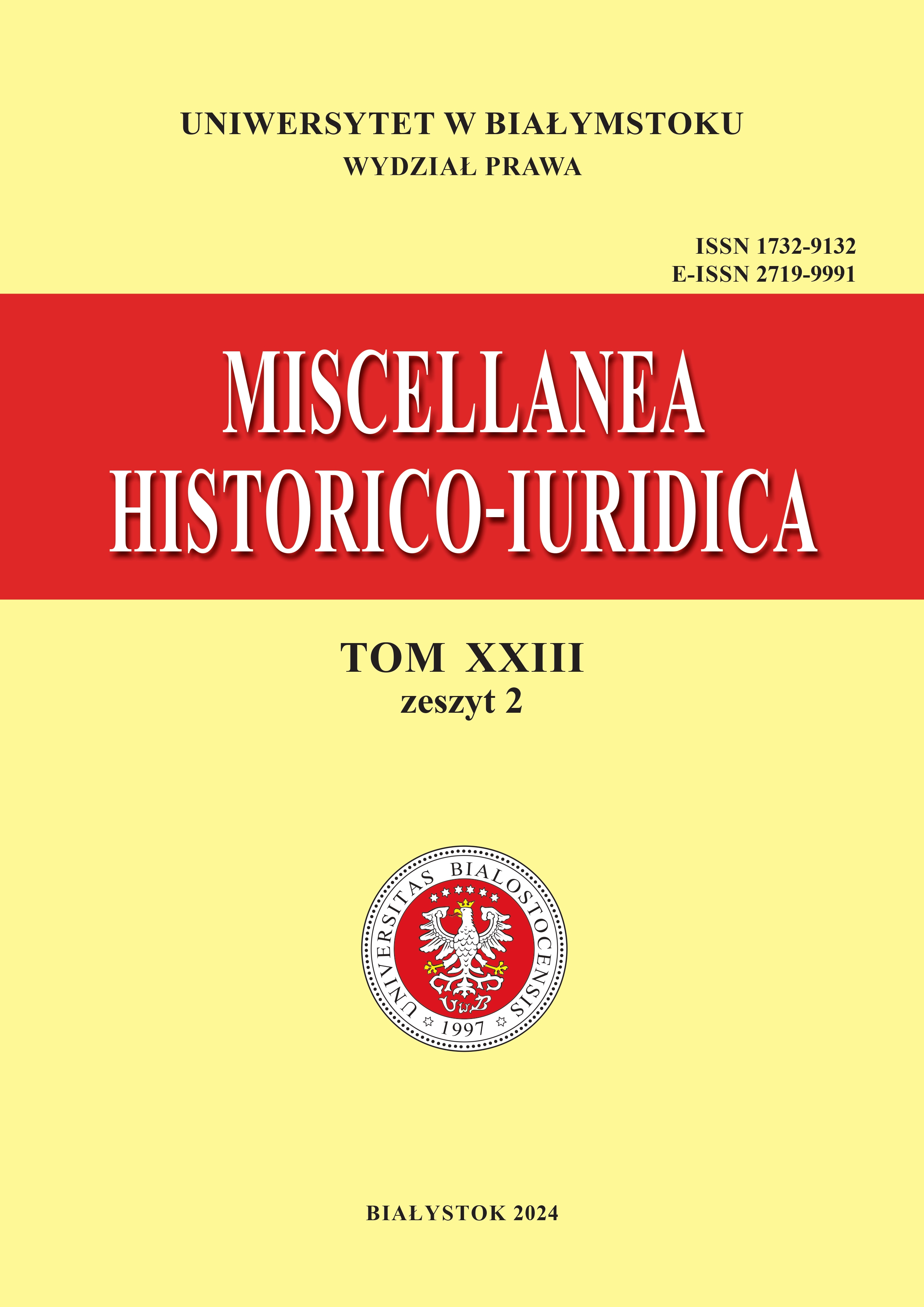Liability Related to Animals in the Statute of the Lwów Armenian Community
Keywords:
veterinary medicine, veterinary history, civil law, penal law, legal historyAbstract
The pre-partition Kingdom of Poland was considered homeland by numerous minorities, including a group of Middle-Eastern immigrants – the Armenian diaspora. They brought with them their own laws, customs, faith and language, and after settling in a new place, in south-eastern Poland, they were able to interact with other residents and creatively transform and develop their legal system. The creation of the Lwów Armenian Statute was initiated by a dispute between the Lwów city authorities and members of the Armenian community in 1518. The content of the normative text of the Statute, however, predates its final redaction. In fact, it is a patchwork and complex normative act.
The most important of its sources was the oldest Armenian lawcode: the Datastanagirk of Mkhitar Gosh. His work integrated various legal concepts, most essential of which constituted the Mosaic law of the Pentateuch. Both Mkhitar Gosh and his unknown successors did not simply copy and join together parts of earlier normative acts, they rather processed, re-read, and up-dated norms. The discussed Statute contains legal solutions which adopted in an original way the legal thought of different sources and created own, innovative normative concepts. Among those we can find a variety of legal norms covering liability related to animals.
References
Balzer Oswald, Statut ormiański w zatwierdzeniu Zygmunta I. z 1519 r., Lwów 1910.
Biblia Sacra Vulgatae Editionis Sixti V Pont. Max. iussu recognita et Clementis VIII auctoritate edita, ed. Fr. Pustet, Regensburg – Rome 1914.
Dzikowski Andrzej, Umowy sprzedaży zwierząt w Statucie ormiańskim, [in:] Ochrona pszczół i pszczelnictwo w badaniach młodych naukowców, eds E. M. Szymański, D. Dyrda, Zgorzelec 2016.
Dzikowski Andrzej, Animal Defects in the Armenian Law in the Crown of the Kingdom of Poland, ”Polish Journal of Natural Sciences” 2020, no. 35(2).
Gloger Zygmunt, Encyklopedja staropolska ilustrowana, vol. 2, Warszawa 1901.
Gosh Mkhitar, Datastanagirk (recension A), [in:] Girk’ Datastani, ed. H. T’orosyan, Yerevan 1975.
Gosh Mkhitar, Datastanagirk (recension B), [in:] Datastanagirk’ Hayoc’, ed. V. Bastameanc’, Yerevan 1880.
Karst Josef, Sempadscher Kodex aus dem 13. Jahrhundert oder Mittelarmenisches Rechtbuch, 2 vols., Straßburg 1905.
Krzyżowski Tomasz, Archidiecezja lwowska obrządku ormiańskokatolickiego w latach 1902–1938, Kraków 2020.
Kutrzeba Stanisław, Datastanagirk Mechitara Gosza i Statut ormiański z 1519 roku, Lwów 1909.
Kutrzeba Stanisław, Mężobójstwo w prawie polskiem XIV i XV wieku, Kraków 1907.
Moniuszko Adam, Iuramentum corporale praestitit. Przyczynek do badań nad przysięgą dowodową w koronnym procesie ziemskim u schyłku XVI stulecia, „Socium. Al’manah social’noi istorii” 2009, nr 9.
Pawiński Adolf, O pojednaniu w zabójstwie: według dawnego prawa polskiego, Warszawa 1884.
von Repgow Eike, Sachsenspiegel, [in:] Der Sachsenspiegel, Landrecht und Lehnrecht, nach dem Oldenburger Codex picturatus von 1336, ed. A. Lübben, Amsterdam 1970.
Statuta iuris Armenici (Statut ormiański zatwierdzony przez Zygmunta I w 1519 r.), [in:] Corpus Iuris Polonici, sect. 1, Privilegia, statuta, constitutiones, edicta, decreta, mandata Regnum Poloniae spectantia comprehendentis, ed. O. Balzer, vol. 3, Kraków 1906.
Thomson Robert W., The Lawcode [Datastanagirk’] of Mxit’ar Goš. Dutch Studies in Armenian Language and Literature 6, Amsterdam-Atlanta 2000.
Downloads
Published
Issue
Section
License
Copyright (c) 2024 Uniwersytet w Białymstoku (entire issue as a whole); Andrzej Dzikowski (article)

This work is licensed under a Creative Commons Attribution-ShareAlike 4.0 International License.







